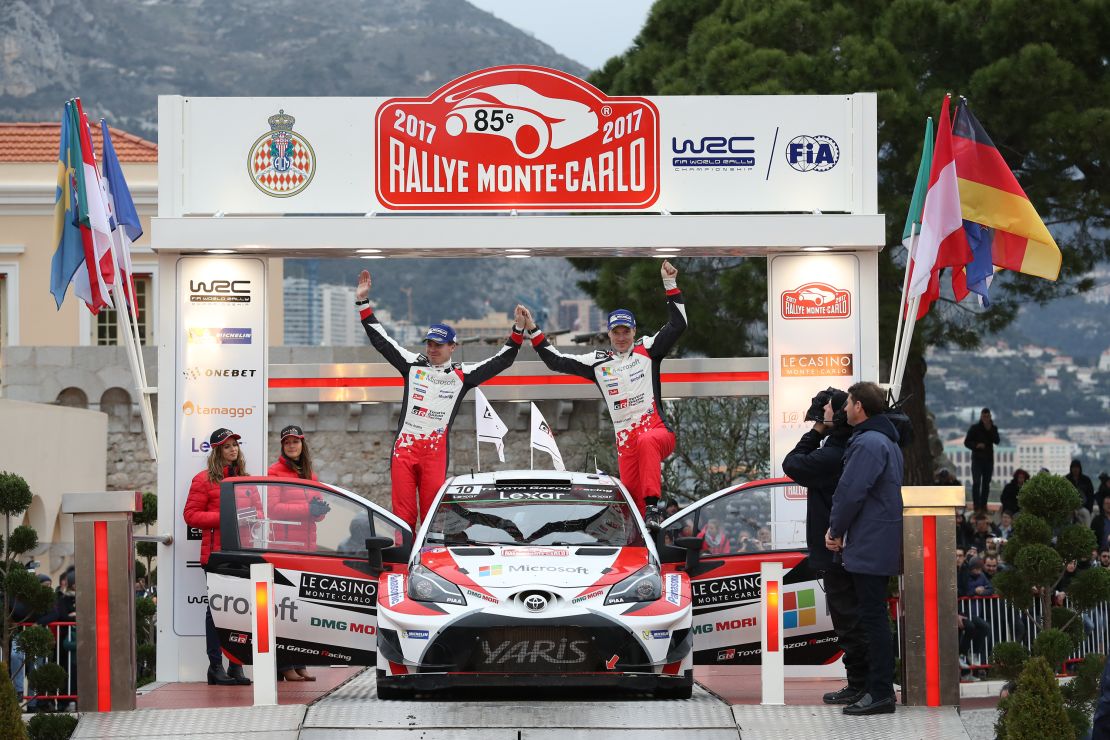Story highlights
Rally is a team sport, says TOYOTA GAZOO Racing's chief engineer
The co-driver is as important as the driver
Pacenotes are essential for keeping the car on course
The glory in motorsport usually rests with the person behind the wheel. They are the ones who become household names and are pictured spraying champagne on podiums.
But in rally racing, it takes at least two to tango. In fact, a manufacturer’s crew can consist of up to 150 members – a co-driver, engineers, mechanics, technicians, you name it – all crucial to the car’s performance.
In that way, it’s like any other team sport, says Tom Fowler, chief engineer of TOYOTA GAZOO Racing team. “Everyone has their position,” he tells CNN Sport. “The driver’s at the pinnacle of it – the person everybody sees – but without every individual in the team we wouldn’t be here.”
But the link between driver and co-driver is key.

Rally’s secret code
While every link in the chain is vital, a co-driver’s instruction delivered a tenth of a second too late could spell disaster. When you’re traveling at 130 kph across different terrains and in all weather conditions, a lot can go wrong.
The co-driver is the person who sits in the passenger seat, clutching a ring-binder notebook and can often be heard muttering unintelligibly over an intercom.
World Rally Championship: TOYOTA's golden era
But what might sound like an unknown language to an audience at home is actually strict guidelines for the driver: detailing each bend, crest and jump, clarifying the length of the straights and warning of any imminent surface changes.
These road markers are carefully mapped during the week before the rally, in what’s known as the “recce” – when the drivers get a chance to run through the event’s stages at legal public speeds in a non-competition car.

“The co-driver is one corner ahead of the car,” says Miikka Anttila, the Finnish co-driver teamed with Jari-Matti Latvala for the TOYOTA GAZOO Racing.
He insists the role is more than that of a navigator. “I need to understand how the car will brake, how the car will accelerate, and I need to deliver the notes so he can go as flat out or as fast as he wants.”
Rally relationships
For the notes to work, the driver needs to fully trust their passenger. And as with anything, that trust needs to be earned.
Latvala tells of the start of his career with Anttila. “We had a couple of accidents where it happened that Miika had the note, but I was still driving partly with what I see,” he says.

Fifteen years into their partnership, Latvala goes strictly by Anttila’s instructions.
Anttila sees the process as similar to any blossoming relationship. At the beginning, there may be awkward silences when you worry something is wrong, but gradually these become comfortable. “We are okay to be silent,” he says.
The relationship’s success ultimately depends on genuine friendship. “We’re traveling about 200 days a year together, so, for sure we are colleagues but we also need to be good friends,” says Anttila. “Otherwise it wouldn’t work.”

It helps that the pair are united by a common goal: a passion for rally and a desire to win. They are each other’s motivation and know that if one of them isn’t in the right headspace, they are putting the other in danger. During the race, focus is entirely on the road ahead.
Visit CNN.com/Rally for more news, features and videos
“When you get in the car, you close the door, you’re on your seat and you’re on your steering wheel. After that, it’s your own world – everything disappears,” says Latvala.


























